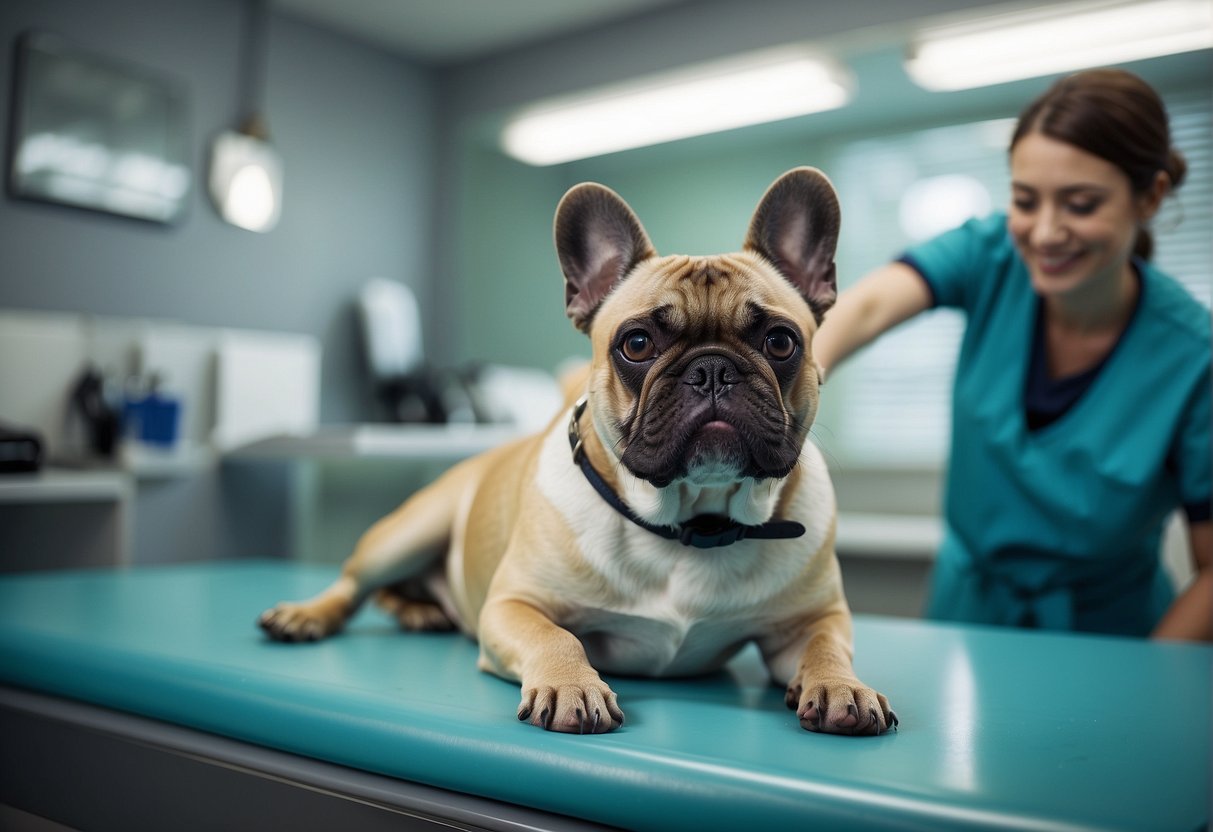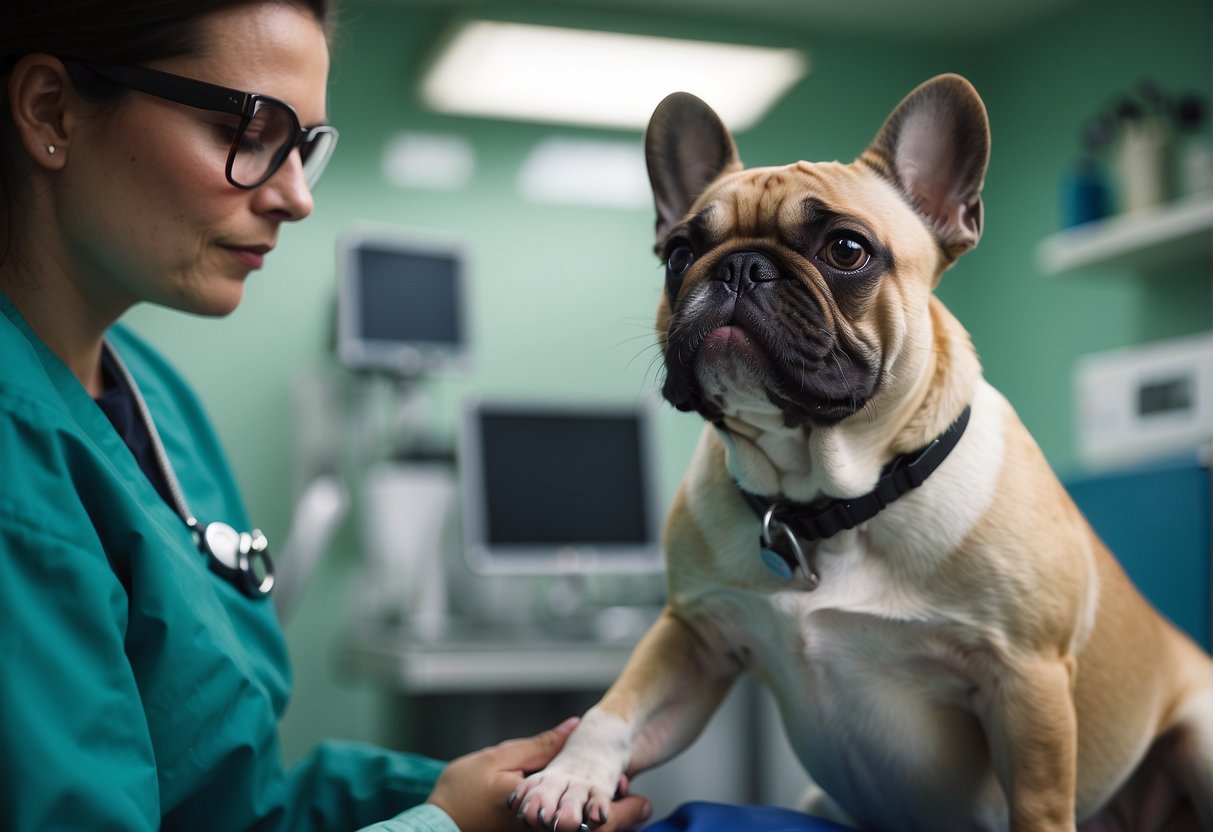Best Time to Get Your French Bulldog Neutered: Expert Advice
French Bulldogs are a popular breed of dog that many pet owners love. However, when it comes to neutering, there is often confusion about the best age to do so. Neutering is a surgical procedure that removes the testicles in male dogs, and it can have several health and behavioral benefits. In this article, we will discuss the best time to neuter a French Bulldog and the factors that pet owners should consider.

According to veterinarians, the best time to neuter a French Bulldog is between 4 and 9 months of age when the puppy is still in the adolescent phase. During this stage, the dog is not yet sexually mature, and neutering can have multiple health and behavioral benefits. However, it is important to note that the decision to neuter a dog should be made on a case-by-case basis, taking into account the dog’s health, breed, and lifestyle.
Understanding Neutering and Its Importance

When it comes to owning a French Bulldog, one of the most important decisions a pet owner must make is whether or not to neuter their furry companion. Neutering is a surgical procedure that involves removing the testicles of a male dog, and it is done to prevent unwanted breeding and to help manage certain health and behavioral issues. In this section, we will discuss the importance of neutering, the health benefits and risks, behavioral changes post-neutering, and the neutering procedure explained.
Health Benefits and Risks
One of the main benefits of neutering a French Bulldog is the reduction of certain health risks. For example, neutering can help prevent testicular cancer, prostate issues, and certain infections. It can also help with bone development and growth, which can lead to a longer life expectancy. However, there are also some risks associated with neutering, such as the potential for weight gain and an increased risk of certain cancers.
Behavioral Changes Post-Neutering
Neutering a French Bulldog can also lead to behavioral changes. For instance, it can help reduce aggression, territorial marking, and sexual behavior. It can also help prevent certain types of roaming and running away. However, it’s important to note that neutering may not completely eliminate these behaviors and that some dogs may experience an increase in anxiety or other behavioral issues post-neutering.
The Neutering Procedure Explained
The neutering procedure is typically performed by a veterinarian and involves the removal of the testicles under general anesthesia. The procedure itself is relatively quick and straightforward, and most dogs recover within a few days. However, it’s important to follow your veterinarian’s post-operative instructions carefully to ensure a smooth recovery.
Overall, neutering a French Bulldog is an important decision that should be made in consultation with a veterinarian. While there are certainly benefits to neutering, there are also potential risks and drawbacks to consider. By understanding the health and behavioral implications of neutering, pet owners can make an informed decision that is best for their furry companion.
Optimal Timing and Care for Your French Bulldog

French Bulldogs are a popular breed of dog, known for their affectionate and playful nature. As a responsible pet owner, it is important to consider neutering your French Bulldog to prevent unwanted litters and reduce the risk of certain health problems. However, it is crucial to determine the best age for neutering and provide proper post-surgery care to ensure a smooth recovery.
Determining the Best Age for Neutering
According to veterinarians and owners, the optimal time to neuter your French Bulldog is between 4 and 9 months old, during the adolescent stage. Neutering before sexual maturity can have multiple health benefits, including reducing the risk of certain cancers and preventing behavioral issues such as urine marking and aggression.
It is important to note that there are myths surrounding neutering, such as the idea that it will cause weight gain or shorten the lifespan of your dog. However, these claims are not supported by scientific evidence.
Post-Surgery Recovery and Management
Neutering is a routine surgery, but it is still important to provide proper care for your French Bulldog during the recovery period. The incision site should be kept clean and dry, and your dog should wear a cone to prevent licking or biting at the area. It is normal for your dog to experience some discomfort and redness around the incision site, but if you notice any excessive swelling or discharge, it is important to contact your veterinarian.
Your French Bulldog may also have stitches or sutures that need to be removed after a certain period of time, as recommended by your veterinarian. During the recovery period, it is important to monitor your dog’s behavior and activity levels to ensure they are not experiencing any complications or pain.
Neutering your French Bulldog is an important decision that should be made in consultation with your veterinarian and breeder. By providing proper care and management during the recovery period, you can help ensure a smooth and successful surgery for your furry friend.
Frequently Asked Questions

At what age should a male French Bulldog be neutered for optimal health benefits?
According to veterinarians, the optimal age for neutering a male French Bulldog is between 4 and 9 months. During this time, the dog is still in the adolescent stage and has not yet reached sexual maturity. Neutering at this age can help prevent certain health issues, such as testicular cancer, and can also reduce the risk of certain behavioral problems.
How much does it typically cost to neuter a French Bulldog?
The cost of neutering a French Bulldog can vary depending on the veterinarian and location. On average, the cost can range from $200 to $500. However, it is important to note that the cost may be higher if the dog is older or has other health issues that need to be addressed before the surgery.
Can neutering help reduce aggressive behavior in male French Bulldogs?
Neutering a male French Bulldog can help reduce aggressive behavior, but it is not a guarantee. Aggression in dogs can be caused by a variety of factors, including genetics, environment, and training. Neutering can help reduce the level of testosterone in the dog’s body, which can lead to a decrease in aggressive behavior in some cases.
What is the recovery period for a French Bulldog after undergoing neutering surgery?
The recovery period for a French Bulldog after undergoing neutering surgery can vary depending on the individual dog and the specific surgery performed. Generally, the dog will need to rest and avoid strenuous activity for at least 7 to 10 days after the surgery. The veterinarian may also recommend pain medication and/or antibiotics to help with the healing process.
Is a cone necessary for my French Bulldog post-neutering, and if so, for how long?
A cone may be necessary for a French Bulldog post-neutering to prevent the dog from licking or biting at the incision site. The length of time the cone should be worn can vary depending on the individual dog and the specific surgery performed. The veterinarian will provide instructions on how long the cone should be worn and how to properly care for the incision site.
What are the potential risks and benefits of early versus late neutering for male dogs?
There are potential risks and benefits to both early and late neutering for male dogs. Early neutering can help prevent certain health issues and reduce the risk of certain behavioral problems. However, early neutering can also lead to an increased risk of other health issues, such as hip dysplasia and certain types of cancer. Late neutering can help reduce the risk of certain health issues, but it may not have the same behavioral benefits as early neutering. It is important to discuss the potential risks and benefits with a veterinarian to determine the best course of action for an individual dog.






